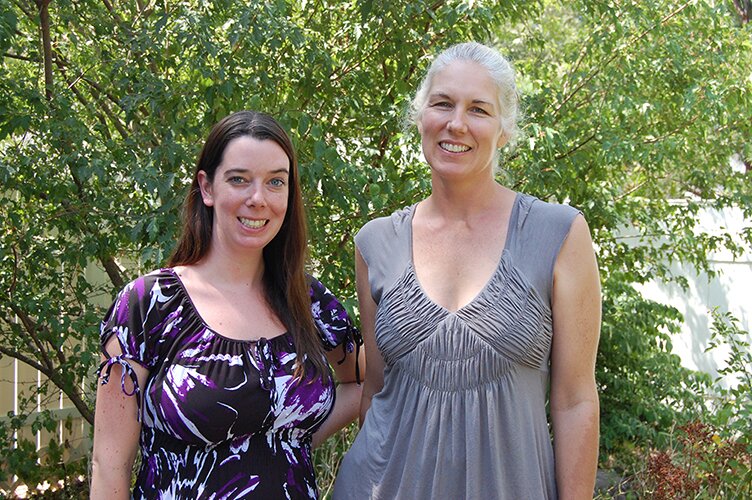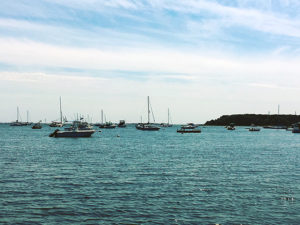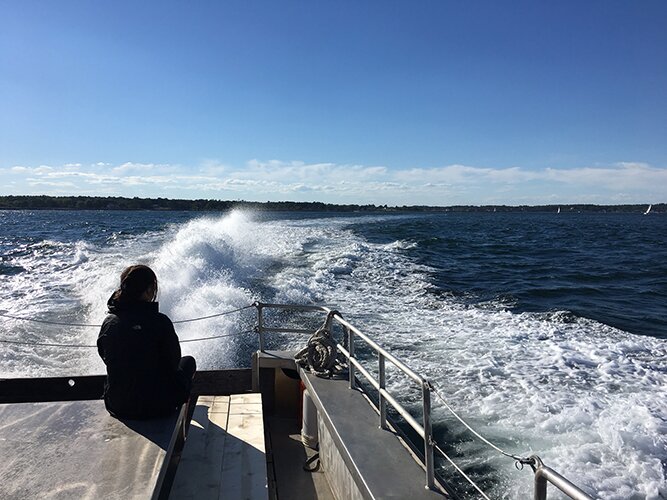Faces of Ocean Planning: Cape Cod’s Self-Reliance

The nonprofit’s renewable energy goals are likely to be bolstered by the implementation of the Northeast Regional Ocean Plan.
For more than 35 years, Self-Reliance (formerly Cape and Islands Self-Reliance) has worked to educate Cape Cod residents, businesses, and neighborhoods on the economic benefits of renewable energy. Through the implementation of unique “energy action plans,” groups and individuals have taken tangible steps to reduce energy emissions, benefitting both the environment and the local economy.
Self-Reliance was established in 1980, through the collective efforts of three diverse organizations: the Mashpee Wampanoag Tribal Council, Cape Cod’s Housing Assistance Corporation, and pioneers of the local ecological movement, the New Alchemy Institute. Self-Reliance is the result of this collaboration with the explicit goal of creating a nonprofit focused exclusively on bolstering renewable energy on Cape Cod – a mission that will be both reinforced and made easier once the Northeast Regional Ocean Plan is approved and implemented.
Pioneers for Renewable Energy
In Self-Reliance’s beginnings, renewable energy was a newly emerging technology. Three decades later, options like solar energy are on the rise, gaining popularity quickly. With offshore wind projects on the horizon along Cape Cod and the islands, Self-Reliance capitalized on years of relationship-building and growing expertise to position themselves as experts in the conversation around innovative energy technology and its potential benefits to incubate jobs and revitalize local coastal economies.
Today, Self-Reliance focuses their mission around four programs:
- A heat and power co-op, through which Self-Reliance works one-on-one with residents, businesses, and townships to determine and achieve tangible energy savings solutions.
- An extensive education program, which includes outreach to Cape Cod schools and the public, in a variety of projects that educate and complement Massachusetts’ STEM (Science, Technology, Engineering, and Math) requirements.
- Consulting services, including assisting a diverse base of stakeholders about energy reduction – including NOAA, numerous local farms, Woods Hole Oceanographic Institute, and even the nation of Haiti.
- Perhaps the most relevant to regional ocean planning, Self-Reliance’s quickly growing training program targeting the offshore wind energy sector. As New England has been deemed by many “the Saudi Arabia of wind,” Cape Cod is quickly becoming one of the most highly sought sites for offshore wind turbines.
With projects by DONG Energy (Bay State Wind) and OffshoreMW proposed near Martha’s Vineyard and Nantucket, Self-Reliance has forged a partnership with Massachusetts Maritime Academy to develop professional training around safety and health standards specific to offshore wind development.
The rationale for this is both practical and pragmatic: with offshore wind projects on the cusp of changing how Cape Codders tap into and utilize energy sustainably, the actual work required to bring such projects to fruition should be done with local hands.
Pre-Planning Key to the Cape’s Wind Energy Success

Cape Cod and the islands are seeing increased interest in offshore wind development, a trend likely to continue in the coming years
Not only will wind energy be a wise choice for the region, the growing interest in Cape Cod’s cache of the resource could also revitalize a currently limited job market for years to come. By providing local residents with the proper skills now, workers will have ample training and experience to be hired once the projects transition from planning to actual implementation.
Through the perspective of Self-Reliance, the intersection between Cape Cod’s wind resources, industry interest, and local coastal communities can only be a fortuitous one. And the products of the Northeast Ocean Plan – whether data, agency coordination, or action steps for better stakeholder engagement – resonate directly with Self-Reliance’s mission and hopes for Cape Cod’s future.
Here are some examples of how the Northeast Ocean Plan can help Cape Cod continue renewable energy leadership into the future:
– The Plan will provide the tools necessary to usher in emerging projects (including projects essential to combating climate change), and residents will have an early, ready-made seat at the discussion table, with more robust opportunities to provide input.
– Information from the Plan’s Data Portal will ensure project locations are placed in areas that avoid vital commercial fisheries, keystone marine species, and important habitats.
– Before development begins, better federal agency practices will improve the permitting process, providing a practical and transparent approach to ensure that permitting moves forward with greater efficiency and less bureaucracy.
A more concerted focus on project planning, using the Northeast Regional Ocean Plan, can set up projects for success in implementation – charting a continued path toward abundant clean energy opportunities and a diversified local economy.
Regional ocean planning has the potential to help coordinate wiser ocean management across all sectors, to the direct benefit of local coastal communities and the resources we collectively rely upon. Self-Reliance is an example of how engaging local communities in the implementation of ocean planning will contribute to its success.




Leave a Reply